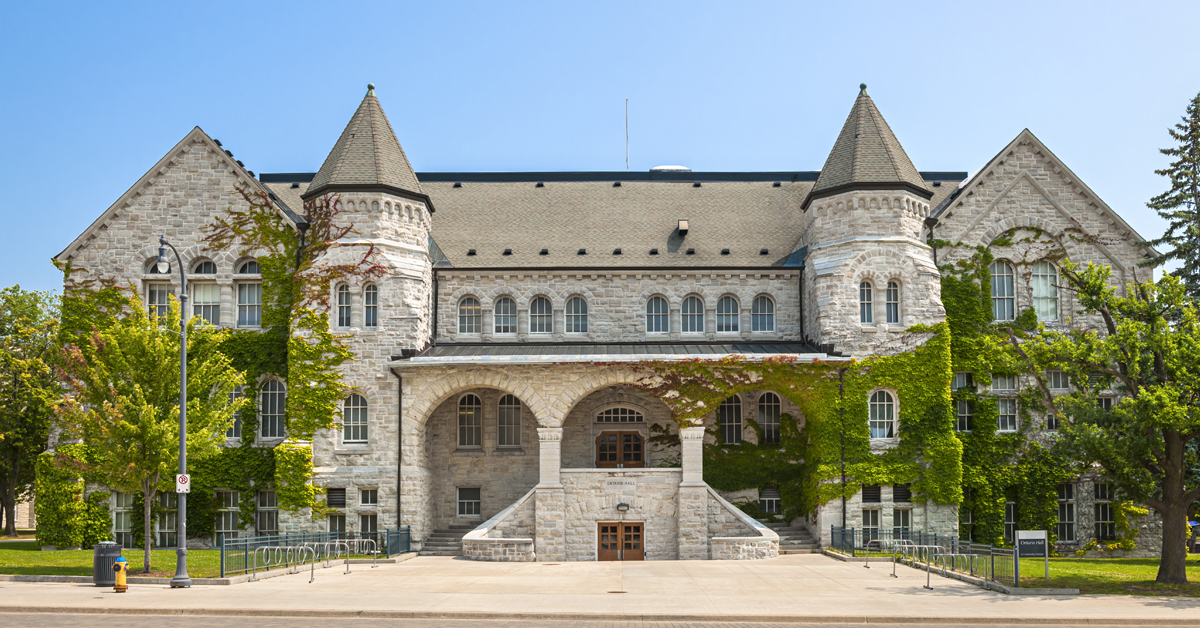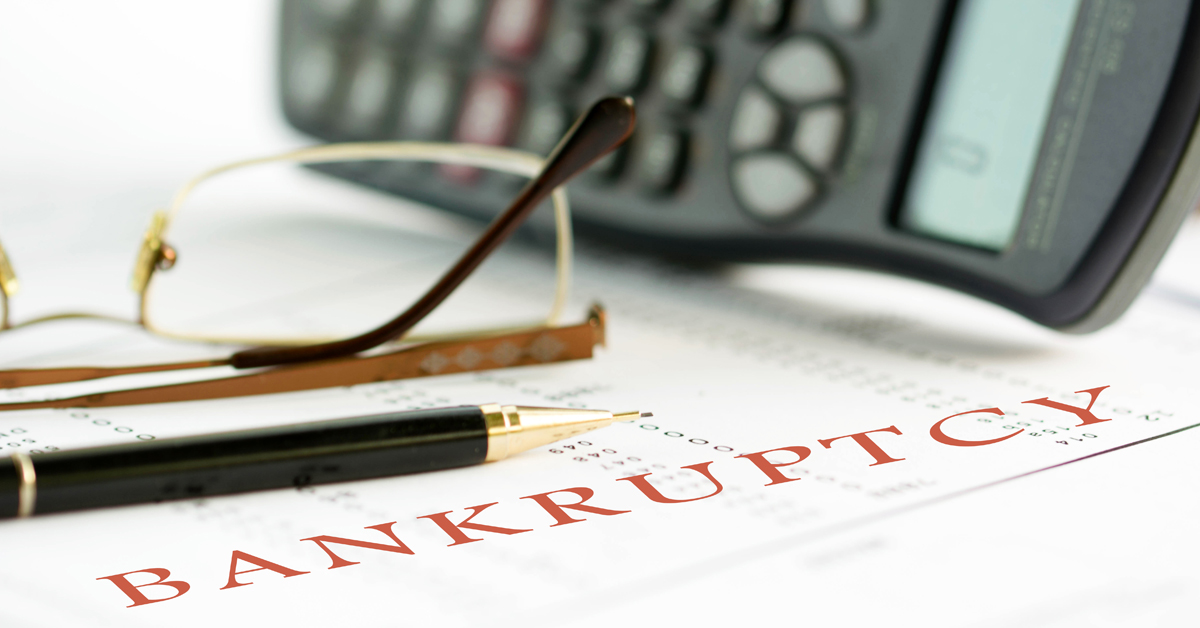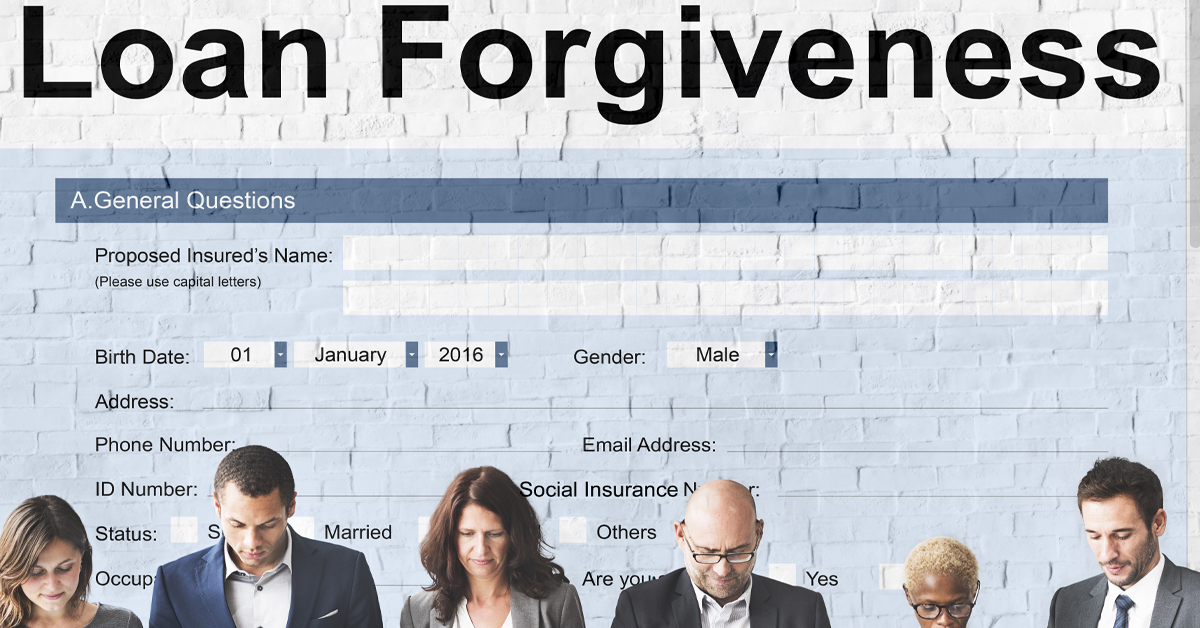
Household debt was in a crisis before the recent economic downturn, with many Canadians owing more debt than they could ever hope to repay, and the coronavirus shut down of 2020 has accelerated the collapse. Sky-high job losses have highlighted just how many people were truly living paycheque to paycheque and relying on debt to make ends meet. While unemployment insurance and CERB kicked in reasonably quickly, neither program is meant as a complete income replacement, and they don’t cover everyone. Higher debt levels due to payment deferrals and more borrowing will be just one lasting legacy of the economic fallout of COVID-19.
That’s why a number of public figures are suggesting a radical and ancient solution: A Debt Jubilee.
A debt jubilee is exactly what it sounds like: debt gets wiped out.
Table of Contents
The Need for a Debt Jubilee
It’s not difficult to see why people are calling for a debt jubilee.
Canadians are carrying a record level of debt, and while we are off work during the pandemic of 2020, many of us will pile on more debt. Small businesses and contractors will take on debt to pay rent while they generate little or no revenue. Consumers will take on additional debt to make their mortgage payment or pay rent, buy groceries, and pay for necessities. Unfortunately, much of this debt will be of the high-interest sub-prime variety. Payment deferrals may help in the short term, but will only add to the debt load post-COVID19.
For some, the result will be an insurmountable amount of debt — it will be more debt than they will ever be able to repay.
The math is sobering: the typical person who filed a consumer proposal or bankruptcy with Hoyes Michalos before the downturn earned $2,690 per month (after tax), but after paying for living expenses (like rent, food, and transportation) they only had $264 left to service their debts.
Here’s the math problem: their debts, at just under $59,000, required minimum interest payments of just over $1,200 per month.
See the problem? It costs $1,200 to pay the interest, but my typical client only has $264 available to service their debt. And that only covers the interest, so even if they had $1,200 per month, they would never pay anything towards the principal.
They would be in debt forever.
And that’s a problem because if you have a lot of debt, you are less likely to get married and start a family or take the risk of starting a business. Excessive debt is not good for you, but it’s also not good for society.
And when debt grows so large that repayment would force the debtor into extreme financial hardship, a debt jubilee becomes a way to restore balance for both the debtor, and society.
Historical Precedent

In his book “…and forgive them their debts,” Michael Hudson, an Economics professor, gives the history of the debt jubilee during ancient times.
It was not uncommon for a new ruler to take power, and then declare a debt jubilee, wiping out debts.
Why?
Two reasons:
First, you become very popular with people if you cancel their debts. It’s a great way to hold on to power.
Second, the rulers realized that if citizens spent all of their efforts trying to repay old debts, they would not have the resources to pay new taxes or leave their land and family to serve in the military.
But times were a bit different 4,000 years ago.
Most debts were monies owed to the palace or the temple and were often for back taxes, fees, or rents on crown land. The ruler levied taxes or other fees, and if there was a drought or a flood and the farmer didn’t have the money to pay, the farmer went into debt. In many cases, it was through no fault of their own; you can’t control extreme catastrophic events like the weather. When a ruler declared a debt jubilee, he was cancelling a debt owed to himself. A debt jubilee was not an entirely selfish act. It was in his best interest, as ruler, to cancel those debts.
Student Loan Debt
Many people think of student loan debt when they think of a debt jubilee.
If you have a Canada Student Loan, your student debt is owed to the government.

If you have student loan debt and graduate in the middle of a coronavirus epidemic that closes most businesses, and then a recession starts, and no-one is hiring, how are you supposed to make payments on your loan?
It’s very similar to the farmer from 4,000 years ago who lost his crop due to drought or flood and had no money. He couldn’t pay the debt back, through no fault of his own, just like many students today who can’t repay their student loans, through no fault of their own.
It’s easy to see how a debt jubilee is beneficial to student debtors. By giving students a break, they can have money to buy stuff, like houses, and have kids, and make money, and pay taxes, and that’s good for society.
The Canadian government has already stepped in with student loan deferrals and an interest freeze for graduates impacted by COVID-19. If the financial impact of the coronavirus lingers, could this not be extended to more lenient student loan forgiveness rules than exist today?
The problem most commonly cited is the cost.
The Canada Student Loans program has around $20 billion in outstanding student loans. When you add in provincial student loans and private student debt, the total student debt is many tens of billions of dollars.
Can we afford to forgive all student loan debt?
Tens of billions of dollars is a lot of money that the government is expecting to recover. If that debt is written off, that may result in less money available to fund other programs without further increasing our national debt. The government is running a deficit to support businesses, workers, and students already. How far, and wide, can we afford to go?
Another problem with a debt jubilee is fairness. What exactly is fair?
It depends on your perspective.
If you graduated with no student loan debt or paid yours back long ago, you don’t think it’s fair that someone else gets their debt forgiven. If you’re still struggling with student loans, you are much more likely to feel a debt jubilee is fair and just.
Private Debt
Today, most of our debts are private loans, like mortgages, HELOCs, credit cards, car loans, and payday loans. Private loans are not monies owed to the crown or government. The lenders are banks, credit unions, and other private lenders.
Although major banks and mortgage lenders are offering those temporarily unemployed or unable to work due to COVID-19 the ability to suspend mortgage payments for a short period, these private lenders won’t simply forgive a debt, like the rulers 4,000 years ago.
These supports are temporary. Deferrals help with cash flow, but in most cases, interest will continue. When debtors return to work, they will face an even higher debt load. What happens if they still can’t meet their debt obligations. Do we need a form of ‘private’ debt jubilee?

A liability owed by you is someone else’s asset, specifically your creditor’s. If your bank writes off your debt, the bank losses that money.
But wait, you say! The banks can afford it.
The largest bank in Canada, The Royal Bank of Canada, has $426 billion in retail loans. RBC’s total equity (what the bank is worth on paper; all of their assets less all of their liabilities) is $83 billion, so if there were a debt jubilee for retail loans, RBC would be wiped out, many times over.
You may feel the banks deserve the loss, but who owns the banks?
You do.
The CPP Investment Board invests the Canada Pension Plan premiums you pay every paycheque; guess how much they have invested in the Royal Bank?
$555 million.
And they have around $1.3 billion invested in the other four big banks, so if the banks get wiped out, your pension will be a lot less when you retire; the money won’t be there.
That’s just one example. If you own a general-purpose mutual fund, it’s also invested in Canadian bank stocks, so if the banks get wiped out, you get wiped out. You own the bank, through your CPP pension, and your company pension, and your mutual funds and ETFs and other investments.
Destroying the bank is not good for you.
And we are back to that tricky point of fairness.
If you bought your home at the peak of the market and can’t afford your mortgage payment, you might think it’s only fair for the bank to waive your payments while off work or not charge interest on interest. But if you speculated on an Airbnb condo, should you get the same jubilee?
Boom & Bust & Debt
There is no doubt that COVID-19 is going to be the catalyst to a recession, and maybe even a depression.
Recessions are a normal part of the boom and bust economy.
Some argue that our current downturn isn’t a ‘debt-driven’ recession. I’d say the reason or trigger doesn’t matter; the outcomes will be the same – a whole lot of problem debt.
American economist Hyman Minsky believed that instability in capitalism is inevitable. Even more, Minsky believed that what causes a recession is private debt.
It’s called leverage, and everyone who has watched the real estate market this century understands exactly how it works.

That’s why so many people in Toronto and Vancouver turned their homes into ATMs. They felt wealthy. They levered against their perceived wealth. Sometimes to invest in more real estate, sometimes to fund consumption.
As I said earlier, the problem with a debt jubilee is whose mortgage payments do we forgive? It may seem fair to give relief to the millennial who purchased a home to live in during this crazy market and who is now paying a monthly mortgage on a house that is underwater. Do we give the same relief to the guy down the street who levered his home equity to invest in three Airbnb condos in downtown Toronto?
The Solution
So what’s the solution?
We can all agree that each human being on the planet is different, so we should be able to recognize that different situations require different solutions.
That’s how we do it now.
If you have children, you can apply for the Child Tax Benefit. If you don’t have children, you can’t. Is that unfair? No, different situations require different solutions.
Should you be able to collect the old age pension at the age of 22? No, we’ve decided that old age pensions are for people who have reached a certain age, and presumably have a reduced ability to generate income.
So we can all agree that a universal debt jubilee, where all debts get wiped out, regardless of circumstance, makes no sense.
How Would A Modern Debt Jubilee Work?
How do we decide who gets a debt jubilee, and who doesn’t?
How do we decide who should get a full elimination of their debts, and who only needs a bit of help, so they only need partial forgiveness?
How can we set up a system to give relief to the people who need it, but not burden society by giving free money to people who don’t need it?

We already have a system.
We’ve had the system in Canada for well over 100 years.
All of the rules are contained in the big book, the Bankruptcy & Insolvency Act.
If you think you have more debt than you can ever hope to repay, you can apply for a debt jubilee.
The Bankruptcy & Insolvency Act already has the rules and guidelines in place to make a modern debt jubilee fair and equitable. The rules determine whether or not you get a debt jubilee, and if so, how much debt forgiveness you get.
Everyone doesn’t qualify. Only those who need it are eligible. Only those who are insolvent and can’t repay their debts can have their debts forgiven.
The concept of surplus income makes debt forgiveness fair between earners. If you are a working person doing your best but not earning enough to make ends meet, it makes sense that you would get close to full relief. If you are a doctor or a lawyer earning a good income, you have to pay more into the process and only get partial relief. If you want to adjust for high mortgage and rent in larger cities like Toronto and Vancouver, the government could adopt regional surplus income limits.
If we want to extend the debt jubilee to more people, the mechanisms are there.
We could eliminate the waiting period for the discharge of government-guaranteed student loans, a position I’ve taken for many years now. I believe that our current 7-year waiting rule for student loans is unjust, unfair, and easily fixable.
If we feel that COVID-19 is an exceptional economic event, credit bureaus could shorten the period during which they retain written-off debts on credit reports, although this may not really matter. Post COVID-19 lenders will be in the market to loan again. They’ll make their own decisions as to creditworthiness.
My point is this: any system must be perceived to be trustworthy and administered in an equitable and unbiased manner. The only way to achieve that is through formal legislation like the Bankruptcy & Insolvency Act. We’ve already seen cases of debtors denied mortgage deferrals. Any debt jubilee program enacted by individual private lenders is fraught with complications and has the potential for both abuse and bias.
Solving the Real Problem: The Debt Cycle
So okay, we all agree that instead of a “one size fits all” debt jubilee, we only help the people who need help.
Makes sense.
But does that actually solve the problem?
What is the actual problem?
Professor Steve Keen, in his book, Can We Avoid Another Financial Crisis, says that a modern debt jubilee would reset the clock, and it would eliminate debt, but it would not solve the problem, because we would just get into too much debt again!
Capitalism is booms and busts. We borrow too much, and can’t pay it back, so to solve the problem of ever-increasing debt, Professor Keen says we need to eliminate speculative borrowing.
It’s good for society that if you want to start a daycare business, you should be able to go to the bank and borrow money to pay for a building, or to fix up a building, and to buy equipment and whatever else you need to start the business.
Borrowing for productive purposes is good.
Entrepreneurial activity is good. It creates jobs and builds our wealth.
The problem is that a lot of our borrowing today is for leverage so that we can buy assets, like houses, and as we all know, that kind of borrowing creates debt bubbles and inequality, and that’s not good for society.

Is a debt jubilee a good idea?
I think if you are asking that question, you’re asking the wrong question.
The question we should be asking is if some debt is harmful to society, what can we do to prevent bad debt from being borrowed in the first place?
Let’s treat the real problem, not the symptom.
And an excellent place to start is for the government to get out of the loan guarantee business. When the government guarantees loan repayment, bad economics follow.
Let’s take student loan debt, for example. Inflation has increased two times since I went to university 35 years ago, and yet tuition has gone up 17 times. During that time, annual Canada student loan disbursements have increased more than 12 times. Do you see a trend here? Having the government guarantee student loans just encourages lenders and universities to increase the price. After all, the more you can borrow, the more you can pay, right?
Government-insured mortgages are another example of faulty debt economics. Canada Mortgage and Housing Corp (CMHC), a federal crown corporation, currently insures somewhere around $500 billion in mortgages. If you default, CHMC (the government) guarantees 100% of your lender’s claim for repayment. If you could loan someone money to buy a house with the loan backed by the government, wouldn’t you jump at that opportunity no matter the risk? That’s how your mortgage lender behaves. And just like with our tuition example, the easier it is to get a mortgage, the higher house prices go. The higher house prices go, the more people want to leverage their way into the housing market.
A government should be in the safety net business, which means the government can effectively manage the debt jubilee process through the Bankruptcy & Insolvency Act. But they should not be in the debt generation business.
So do I believe in a debt jubilee? Yes, but it must be fair and transparent to all. We already have a decent system. Let’s make it even better by eliminating the unfairness (like the 7-year student loan rule and the surplus income calculation that forces residents of big cities to pay more in a bankruptcy) so that individuals, and society, can recover from our current financial problems.






